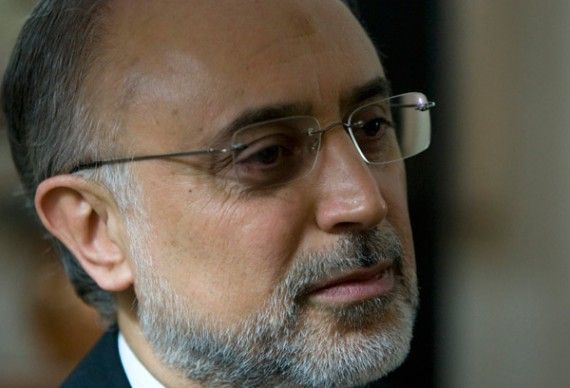Iran Vows To Pursue Nuclear Energy In Defiance Of Western Sanctions, Military Threats

Iran said it is determined to develop a nuclear energy program, in defiance of western sanctions and threats of a military strike by Israel, one week ahead of talks on the subject between Iranians and world powers.
The sanctions may have caused us small problems but we will continue our path, foreign minister Ali Akbar Salehi told the Islamic Republic News Agency (IRNA), according to Agence France Presse.
We do not underestimate any enemy, no matter how tiny and lowly they are. The regime's officials -- the supreme leader, the president, the army, the (Revolutionary) Guards and Basij (militia) -- are completely vigilant. And the nation is prepared to defend the achievements of Islamic Iran,” said Salehi.
The West thinks that Iran is like many other countries who will yield under America's pressure. But they are mistaken.
Iran's oil minister, Rostam Qasemi, told the Mehr news agency that sanctions on Iran’s oil sector have been a “failure.”
We have seen off what they describe as 'rigorous sanctions' against the oil industry, he said.
Iran is scheduled to meet with the five permanent UN Security Council members -- China, France, Russia, the United Kingdom and the United States -- as well as Germany on April 13 and 14 in Istanbul. The meeting will seek to find a resolution to the nuclear issue which has already led the U.S., the United Nations and European Union to impose draconian sanctions on Iran’s key oil sector.
U.S. President Barack Obama has already warned that the window of opportunity for a diplomatic solution is rapidly closing, suggesting that a military strike on Iran may be likely at some point.
Secretary of State Hillary Clinton, who met with Saudi Arab and Gulf state officials in Riyadh over the weekend, said, Our policy is one of prevention, not containment.” Clinton also demanded that Iran provide “concrete results.”
Iran has repeatedly denied the Islamic Republic is developing nuclear bombs, as ascertained by a report last year from the International Atomic Energy Agency (IAEA). Israel, which views a nuclear Iran as an existential threat to the Jewish state, has warned that a military option against Iran is a possibility, in the event sanctions and diplomacy fail to dissuade Tehran from pursuing atomic energy.
In response, Iran has vowed to retaliate against any military strike on its soil.
Echoing the earlier sentiments of supreme leader Ayatollah Ali Khamenei, a spokesman for Iran’s foreign ministry, Ramin Mehmanparast, told the Fars news agency, Our readiness (to fight off any threat) is at its peak. We take any threat, even those with a low probability of happening, seriously. If any practical action, either surgical or long-lasting, is taken, we will respond decisively.
Meanwhile, an Iranian nuclear envoy has said that while his country will cooperate with the IAEA, that doesn't mean foreign monitors will necessarily be granted easy access to its sensitive military sites, including Parchin, where Iran may be developing atomic weapons, according to the UN watchdog.
Ali Asqar Soltaniyeh, Iran's envoy to the IAEA, told Fox News, We cannot permit each time any country wants to knock at the door and wants to go to our military sites.”
Sanctions have had no effect, he added. We are more determined to pursue our nuclear activities. Nobody would dare attack Iran.”
© Copyright IBTimes 2024. All rights reserved.





















